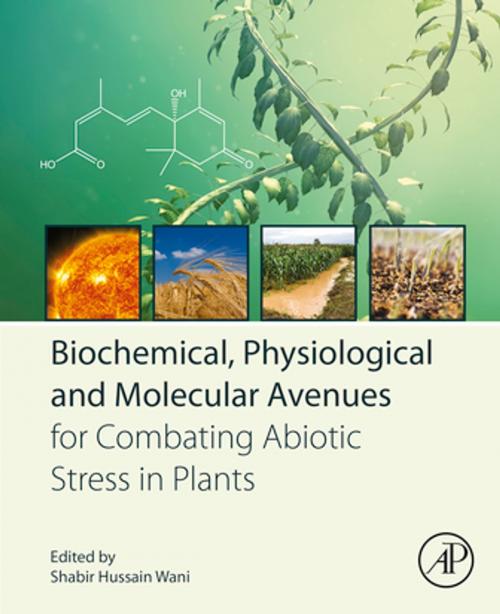Biochemical, Physiological and Molecular Avenues for Combating Abiotic Stress in Plants
Nonfiction, Science & Nature, Science, Biological Sciences, Botany, Technology, Agriculture & Animal Husbandry| Author: | ISBN: | 9780128130674 | |
| Publisher: | Elsevier Science | Publication: | June 12, 2018 |
| Imprint: | Academic Press | Language: | English |
| Author: | |
| ISBN: | 9780128130674 |
| Publisher: | Elsevier Science |
| Publication: | June 12, 2018 |
| Imprint: | Academic Press |
| Language: | English |
Biochemical, Physiological and Molecular Avenues for Combating Abiotic Stress in Plants is a must-have reference for researchers and professionals in agronomy, plant science and horticulture. As abiotic stress tolerance is a constant challenge for researchers and professionals working on improving crop production, this book combines recent advances with foundational content, thus offering in-depth coverage on a variety of abiotic stress tolerance mechanisms that help us better understand and improve plant response and growth under stress conditions. The mechanisms explored in this book include stress perception, signal transduction and synthesis of stress-related proteins and other molecules.
In addition, the book provides a critical understanding of the networks of genes responsible for abiotic stress tolerance and their utilization in the development of stress tolerance in plants. Practical breeding techniques and modern genetic analyses are also discussed.
- Unlocks the physiological, biochemical and molecular basis of abiotic stress response and tolerance in crop plants
- Presents comprehensive information on abiotic stress tolerance, from gene to whole plant level
- Includes content on antioxidant metabolism, marker-assisted selection, microarrays, next-generation sequencing and genome editing techniques
Biochemical, Physiological and Molecular Avenues for Combating Abiotic Stress in Plants is a must-have reference for researchers and professionals in agronomy, plant science and horticulture. As abiotic stress tolerance is a constant challenge for researchers and professionals working on improving crop production, this book combines recent advances with foundational content, thus offering in-depth coverage on a variety of abiotic stress tolerance mechanisms that help us better understand and improve plant response and growth under stress conditions. The mechanisms explored in this book include stress perception, signal transduction and synthesis of stress-related proteins and other molecules.
In addition, the book provides a critical understanding of the networks of genes responsible for abiotic stress tolerance and their utilization in the development of stress tolerance in plants. Practical breeding techniques and modern genetic analyses are also discussed.
- Unlocks the physiological, biochemical and molecular basis of abiotic stress response and tolerance in crop plants
- Presents comprehensive information on abiotic stress tolerance, from gene to whole plant level
- Includes content on antioxidant metabolism, marker-assisted selection, microarrays, next-generation sequencing and genome editing techniques















